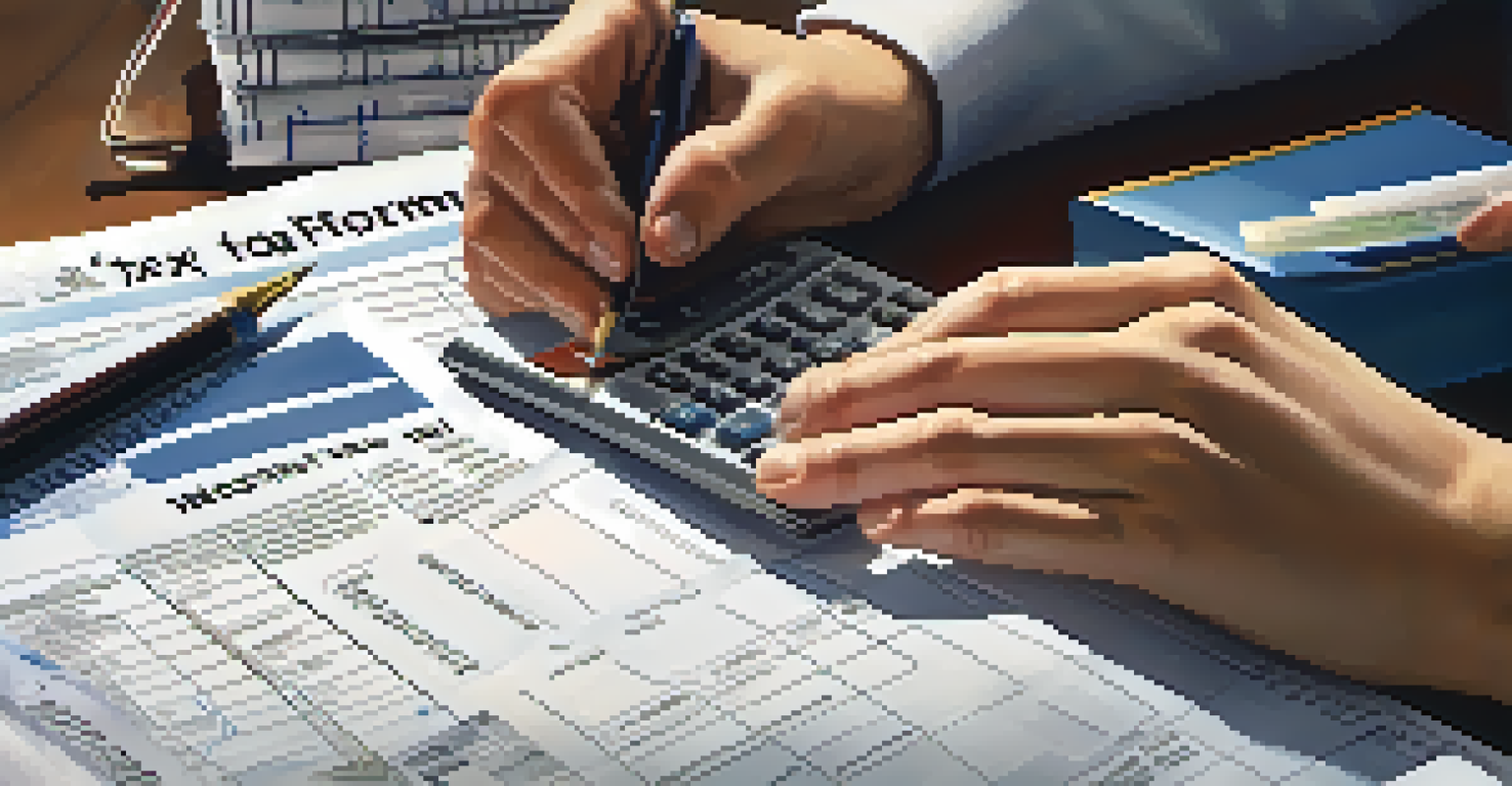Self-Employment Tax Explained for Gig Workers

What is Self-Employment Tax and Who Pays It?
Self-employment tax is a tax that sole proprietors, freelancers, and gig workers pay to cover Social Security and Medicare. If you earn income through self-employment, you’re required to pay this tax in addition to your regular income tax. Essentially, it’s the IRS's way of ensuring that self-employed individuals contribute to the social safety net, just like traditional employees do.
The only thing that is worse than a bad tax is a bad tax that you didn't see coming.
For gig workers, this means that while you might enjoy the freedom and flexibility of your work, you also have the responsibility of managing your taxes. If you earn $400 or more in a year from self-employment, you'll need to file and pay this tax. It’s crucial to stay informed so you don’t get caught off guard when tax season rolls around.
In short, if you’re earning money on platforms like Uber, Etsy, or freelance sites, you’re likely subject to self-employment tax. Knowing this upfront can help you plan your finances better and avoid any surprises come tax time.
Understanding the Self-Employment Tax Rate
The self-employment tax rate is currently set at 15.3%. This rate comprises two parts: 12.4% for Social Security and 2.9% for Medicare. However, there are income thresholds to keep in mind; for instance, only your first $160,200 of income is subject to the Social Security portion, while the Medicare portion applies to all your self-employment income.

For gig workers, this means that if you earn above these thresholds, you’ll be paying a higher effective tax rate on your income. It's essential to factor this into your pricing or budgeting, as it can significantly impact your take-home pay. Just imagine if you’re budgeting for a vacation, only to realize later that your tax bill is higher than expected!
Self-Employment Tax Explained
Self-employment tax is required for freelancers and gig workers to contribute to Social Security and Medicare.
Understanding how this tax rate works can help you make more informed decisions about your work. If you know what to expect, you can set aside the appropriate funds and avoid financial strain when the tax bill arrives.
The Importance of Estimated Tax Payments
As a gig worker, you may not have taxes withheld from your paycheck like traditional employees do. This is where estimated tax payments come into play. The IRS requires those who expect to owe $1,000 or more in taxes to make these payments quarterly, which helps you manage your tax obligations throughout the year rather than facing a hefty bill in April.
Self-employment is about creating a lifestyle that you love and managing your finances to support it.
Making estimated payments can sound daunting, but it’s a straightforward way to avoid penalties and interest. Think of it like paying your bills monthly instead of getting hit with one large payment at the end of the year. Setting aside a portion of your earnings regularly can make the process much smoother.
To calculate your estimated payments, you can use Form 1040-ES, which helps you estimate your tax liability based on your income. This proactive approach can give you peace of mind and keep your financial situation in check.
Deductions that Reduce Your Self-Employment Tax
One of the perks of being self-employed is the ability to deduct certain business expenses, which can significantly reduce your taxable income. Common deductions for gig workers include costs for supplies, mileage, and home office expenses. These deductions can lower your overall income, which in turn reduces the self-employment tax you owe.
For instance, if you drive for a rideshare service, you can deduct your mileage, fuel, and maintenance costs. This can add up to substantial savings, making it a smart move to track your expenses diligently throughout the year. Think of it as keeping score in a game; the more you track, the better you can play.
Importance of Estimated Payments
Gig workers must make quarterly estimated tax payments to avoid penalties and manage tax obligations effectively.
However, it's crucial to keep detailed records of your expenses to substantiate your deductions. Utilize apps or spreadsheets to organize receipts and documents; this will save you time and stress when tax season arrives.
Navigating the 1099 Form for Gig Workers
When you work as a gig worker, you’ll likely receive a 1099 form from clients or platforms that pay you. This form reports how much money you earned during the year. Unlike a W-2, which employees receive, a 1099 indicates that you’re responsible for paying your own taxes.
Receiving a 1099 can be a double-edged sword; it’s great because it shows you’ve earned income, but it also means you need to keep track of your earnings and pay self-employment tax. Make it a habit to collect and review your 1099 forms, as they play a crucial role in accurately reporting your income to the IRS.
Additionally, remember that you can also use these forms to help calculate your estimated tax payments. By keeping your 1099s organized, you’ll have a clearer picture of your earnings and tax obligations, making tax time less overwhelming.
How to File Your Taxes as a Gig Worker
Filing your taxes as a gig worker can seem complicated, but it doesn’t have to be. You’ll generally need to report your income on Schedule C, which accompanies your Form 1040. This schedule allows you to detail your income and any business expenses, ultimately determining your net profit or loss.
After completing Schedule C, you’ll also need to fill out Schedule SE to calculate your self-employment tax. This form will help you determine how much you owe for Social Security and Medicare based on your net profit. Think of it as piecing together a puzzle; each form fits together to give the full picture of your financial situation.
Deductions Can Reduce Tax Burden
Tracking business expenses allows self-employed individuals to lower their taxable income and reduce self-employment tax.
If the process feels overwhelming, consider using tax software or consulting a tax professional. They can help ensure you’re accurately reporting your income and taking advantage of all possible deductions, ultimately putting more money back in your pocket.
Common Mistakes to Avoid with Self-Employment Tax
Even seasoned gig workers can make mistakes when it comes to self-employment tax. One common error is underestimating how much to set aside for taxes. Many gig workers get excited about their earnings but forget that a portion needs to go to taxes, leading to financial strain later.
Another mistake is failing to keep accurate records of income and expenses. Without proper documentation, you might miss out on valuable deductions, which can increase your tax bill. It’s like trying to bake a cake without measuring your ingredients—things can quickly go awry if you’re not careful!

Lastly, some gig workers overlook the importance of making estimated tax payments. Ignoring these can result in penalties and interest, adding unnecessary stress to your finances. By staying organized and proactive, you can sidestep these pitfalls and enjoy the benefits of self-employment.